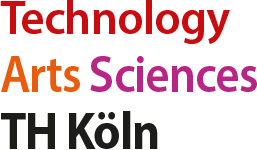Thesis proposals

We have listed subjects of interests for projects and theses below. Please, contact the corresponding person to gain more detailed information about a specific subject.
Recent proposals
Shared Workspaces at the Faculty of Computer Science and Engineering
Campus IT provides the faculty with several collaboration tools. These include sciebo, a group directory, Microsoft Teams, Cisco Jabber, and a wiki based on Confluence. Instances of Mattermost and Nextcloud run locally. Some of the tools have overlapping functionality. The Faculty of Computer Science and Engineering is not sure which tool is recommended for which use case. Furthermore, there are uncertainties regarding the GDPR, in particular the storage of personal data and the applicable retention periods. The project will develop (1) typical use cases with associated requirement profiles in the context of shared workspaces for staff and students of the F10 faculty, (2) tool recommendations, and (3) a role and authorization concept. The project will be carried out in cooperation with various stakeholders at F10 as well as with Campus IT. Selected stakeholders may be available as interview partners.
The topic is suitable as a project for teams of dedicated bachelor students and as a project for master students in digital sciences, especially in the field of IT management.Contact: Prof. Dr. Stefan Karsch
Differences and similarities between modern web automation frameworks
Multiple frameworks exist that allow the automation of conventional browsers. The most famous frameworks are Puppeteer for Chrome, Playwright (Chrome/FF/Webkit), and Selenium+WebDriver. The goal of this work is to elaborate and contrast these frameworks' mechanics. Based on this knowledge, the fingerprint surface shall be determined.
Contact: Prof. Dr. Stefan Karsch
Attacking automation frameworks
Automation frameworks enable search engines, business intelligence and large-scale research. However, there have been rare attempts to explore the threat model for these automation frameworks and their application. This project dives into this unexplored area.
Contact: Prof. Dr. Stefan Karsch
Determining the similarity of JavaScript files
Websites serve JavaScript to execute code at the client. However, there may be reasons to serve varying files to multiple clients (e.g. malicious targeted attacks). How to assess the similarity of JavaScript files and to measure such events in the wild is the subject of this project.
Contact: Prof. Dr. Stefan Karsch
Effects of bot detection on measurements
Recent emerging work has shown that there are significant effects on web measurements when using so-called headless browsers. However, the general question of how a specific bot setup influences measurements remains unclear. This project aims to investigate the effect of different setups for bots on web measurements.
Contact: Prof. Dr. Stefan Karsch
How to compare scraping runs?
Web bots are commonly used to study the web. However, the reliability of some bots has been questioned recently. Comparing measurements with bots is one way to determine the reliability of these tools. The project aims to determine parameters that need to be considered and to find suitable settings for these parameters.
Contact: Prof. Dr. Stefan Karsch

